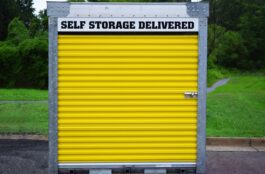Coastal areas and river floodplains are most susceptible to flooding. But it’s also possible to flood in all places when they experience heavy and continuous rains. Major and big cities are not free from flooding either due to a lack of water drainage. The fact is, nature is unpredictable and can hit any second.
The garage is one of the most flooded parts of a home, and bad weather conditions are not the only culprit, but also broken pipes. When these occur, your vehicle can be submerged, leading to damage to electrical systems, mechanical systems, lubricants, etc. The good news is that taking some steps can protect your car from floodwater as follows:
1. Park Your Car on Elevated Grounds
Whether it’s the rainy season or not, consider parking your vehicle on higher ground if you have access to it. This is even more helpful if you own a sedan or hatchback because they are comparatively lower. Take note that flood water will gather in low-lying areas first before rising, which can damage your car’s electronic devices and mechanical parts if left soaked in water.
2. Detach the Batteries
If the local weather forecast reports that a thunderstorm or heavy rainfall is coming, it’s usually best to disconnect the batteries from your car early on. This is more important for houses surrounded by rivers and dams. It helps in securing all the electrical of your vehicle if it gets submerged.
3. Make Sure Your Vehicle Is Sealed
Before a storm hits, ensure that your vehicle’s doors, windows, and sunroofs are tightly secured. Fix any holes from previous damage and ensure that your windows don’t have gaps because this can allow water into the cabin.
4. Ramp Up Your Vehicle
Throughout the rainy season, be updated with weather forecasts to figure out the possibilities of storms. “It’s better to prepare and avoid than repair and repent.” If you don’t have access to an elevated ground to park your car, ramp it until the engine does not get immersed. If water enters your vehicle’s engine, it can result in a hydro lock that can make your car worthless in an instant.
5. Bag Your Car
Big waterproof guards are now marketed, which are designed to secure your parked car during a garage flood. While the stability of these products is not guaranteed from sharp objects, they can help ensure your four-wheel drive from potential damage.
6. Make Fixes or Repair Work on Your Garage to Prevent Flooding
Securing your vehicle from garage flooding is useless if you do not fix the primary problem, to begin with. For a quick fix, you can make use of sandbags or other flood barricades when there’s a storm heading your way, and you don’t have time for major repairs. This can help redirect water far from your garage towards storm drains or other different courses.
Fix any cracks in the foundation to stop water leakage into your garage. You can also utilize weatherstripping if there are gaps between your garage floor and garage door. Install it under the garage door to firmly seal it against the floor. In severe flooding, contacting a water restoration company saves you from further damage and additional expenses. You may click this link for more info about water damage restoration services you may need in the future.
Final Thoughts
If you reside in flooding and storm-prone places or are surrounded by dams and rivers, make it a routine to keep track of weather updates to make sure that you can plan ahead of time. While you can’t stop a natural catastrophe, you can do some actions to protect your family, home, vehicle, and other belongings.
On top of these, keep emergency numbers at hand. Besides your local fire department, police, 911, Red Cross, and other public agencies and NGOs, you must also have a trusted water remediation company list in your area. Remember that they are your go-to people for cleaning up, saving, and restoring your house and valuables.


